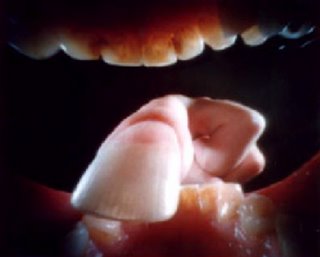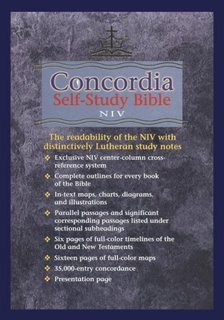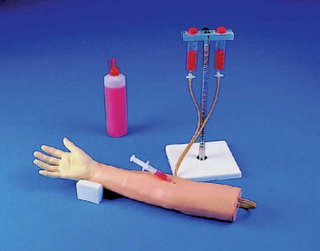From Frank Curry (currently a Doctoral student in Patristics, at Mansfield College, Oxford University):
Hey John, I prepared the below posting in response to Simeon's article on your blog. Thought I should send it to you first for vetting. Post it if you like.
Warmest Christmas Wishes, BFC
Dear JAZ,

Merry Christmas. Glad to see you're back. I was hoping to get a 'John Camp' fix before the holidays. I especially enjoyed the above article. Your brother is quite clever, and his theological opinions are thought provoking, indeed. As much as I would love to join the public display of Zahlian admiration, however, I think it would be a mistake to laud Simeon's article unreflectively. His argument draws an unnecessary dichotomy between the logic of 'imputation' and 'infusion,' which is the result of failing to give the latter a sympathetic reading. A more reasonable representation of the position can be achieved by recognizing, as Simeon seems unwilling to do, that 'imputation' and 'infusion' refer to different moments in the process of salvation and transformation. The forensic metaphor of imputation and the indwelling metaphor of infusion signify different soteriological objects, different aspects of Christ's work which can be conceptually distinguished, and therefore cannot be set in opposition, as Simeon does, in a way that suggests one can only hold to one view or the other. Nor is it possible to suggest that 'infusion' theology is logically incoherent, as Simeon does. It is possible, and indeed necessary, to hold both positions. I will explain.
Yet, it is important to realize that drawing a straight line from action to essential character (or being) is logically suspect. Morality and ontology are distinguishable sphere of discourse. Consider the case of a criminal. A criminal is someone who has (either accidentally or voluntarily) committed a crime. As a crime committer, that person must suffer the penalty of his or her actions and pay the debt they owe society. Yet, 'criminal' is as accidental term, it is not essential. To call someone a criminal, therefore, does not describe what they are as humans, it describes the nature of their actions. Similarly, paying 'one's debt to society' is freeing. Nothing else is owed. And, if for example, you pay my traffic fines, I am still free. The same sort of thing is being talked about in 'imputation' theology. Being a 'sinner' means having committed sins. Christ pays the penalty - Hallelujah!
Being a sinner, however, is also quite different than being a criminal. Sinfulness and death become the determinative feature of human existence, and shape our whole being qua humanity - all the way down the line, "You were dead through the trespasses and sins in which you once lived" (Eph 2:1-2). Thus, there is a second issue that 'imputation' theology, properly speaking, does not, and cannot account for: ontology. Sin is, if you will, inescapably infused into the core of human life, "The human heart is deceitful and wicked above all things; it is perverse— who can understand it?" (Jer 17:9). So there are two problems. One is forensic (legal); it has to do with broken laws and penalties demanded. The other is deeper; it has to do with what we are as humans under the regime of sin and death – it describes what we are ontologically. This is where 'infusion' theology actually can be quite helpful.
[Footnote: the ontological situation I am describing is not created, but is rather a perversion of the original goodness that characterized God's creation of all good things.]
But before going too much further it is necessary to get one important point on the table – a point that ranges beyond the proposal Simeon offers. Soteriologically speaking, it is necessary to see both Christ's death and his resurrection as relevant to our vision of Christian transformation. Why? Because, both Paul and the early church saw the soteriological import of the resurrection. Consider Paul's language of our being baptized into Christ in Romans 6, "Or do you not know that as many of us as were baptized into Christ Jesus were baptized into His death? Therefore we were buried with Him through baptism into death, that just as Christ was raised from the dead by the glory of the Father, even so we also should walk in newness of life" (Rom 6:2-4). Christ's death pays the debt we owe for our wrong doing, yes. But the Easter event is bigger than that. Mysteriously, we are joined to him in his resurrection and can walk in newness of life. It grounds an entirely new mode of human existence. There is ontological transformation.

Simeon calls the 'infusion' position incoherent because "if the imputation of sin to Jesus is true, then the imputation of righteousness to us sinners must also be true. You cannot have the one without the other. Whether by imputation or by infusion, the relationship between our sin and Jesus' righteousness is a reciprocal one. You have to believe either a) that we are infused with his righteousness and he is infused with our sin, or b) that his righteousness is imputed to us and our sin is imputed to him. You cannot mix and match." He goes on to reason that theologically infusing Christ with sin would compromise the incarnate Son's perfection. That is out of bounds. Therefore, the infusion position cannon offer the kind of reciprocal righteousness available in 'imputation' theology – infusion is out q.e.d. But, I think Simeon has missed a deeper point. Recall Athanasius' words, "He became man that we might be made divine." Or Augustine, "But he himself that justifies also deifies, for by justifying he makes sons of God." The incarnation is designed to change the whole human situation. Jesus not only changes our 'status' before God's judgment throne from guilty to forgiven, he changes what we are - from dead in a life of living death, to alive in the God of life. In baptism we are joined to, or incorporated into, the resurrected life of the living Son. In Christ's death, his righteousness is replaced by our sin, and our sin replaced by his righteousness. He pays our penalty. That is the glory that 'imputation' theology attests to. Simeon is right, "we all subscribe to a doctrine of imputed sin in relation to Jesus." In Christ's resurrection, however, his (ontological) life replaces our (ontological) death because he took on what we are so that we could be as he is. That should not be overlooked.
 In the hope of receiving unrestrained Zahlian accolades I would like to add two pastoral-ish caveats. First, there is no need to conclude from what I have said that now we are perfect, all the work is done, let's have fun. Right? That was the mistake of the Corinthian church. I think Simeon is unfair to cast the 'infusion' perspective in that way. Rather, transformation is progressive and takes a life-time of graced discipline to be brought to its fullness. We are enabled by God's grace to increasingly depend on him for the mode of life that he has made available to us. It is all grace. So we still struggle with sin, still wrestle to be free to the promise of the new self. But it is a different kind of struggle. We are no longer ontologically slaves to sin and death. We are slaves to Christ who is our life and our newness of life. On the moral level, because we are assumed into him, our good works must always be seen as God's work in us, "It is God who works in us both to will and to do His good pleasure" (Phil 2:13). We continue to struggle and sin (i.e. commit wrong acts), however, when we abandon the relationship of dependence that secures our transformation. It is also eschatological. I think the story Paul is telling, and therefore that we must tell, is that in the end we will be like him as he is, because we will see him in his glory. That is our telos.
In the hope of receiving unrestrained Zahlian accolades I would like to add two pastoral-ish caveats. First, there is no need to conclude from what I have said that now we are perfect, all the work is done, let's have fun. Right? That was the mistake of the Corinthian church. I think Simeon is unfair to cast the 'infusion' perspective in that way. Rather, transformation is progressive and takes a life-time of graced discipline to be brought to its fullness. We are enabled by God's grace to increasingly depend on him for the mode of life that he has made available to us. It is all grace. So we still struggle with sin, still wrestle to be free to the promise of the new self. But it is a different kind of struggle. We are no longer ontologically slaves to sin and death. We are slaves to Christ who is our life and our newness of life. On the moral level, because we are assumed into him, our good works must always be seen as God's work in us, "It is God who works in us both to will and to do His good pleasure" (Phil 2:13). We continue to struggle and sin (i.e. commit wrong acts), however, when we abandon the relationship of dependence that secures our transformation. It is also eschatological. I think the story Paul is telling, and therefore that we must tell, is that in the end we will be like him as he is, because we will see him in his glory. That is our telos. Second, if we adopt the imputationist-incorporationist perspective I am espousing, we cannot take advantage of the easy moral loop holes afforded by either view on its own. You must have both. The life of the believer is transformed, but is also always in progress. Simul Justus et peccator (committing wrong acts) et being transformed . Or, I am saying that only by adopting both perspectives can you really cut against antinomianism. But like Simeon, I'll leave that is for another time.
Here is the crux: Christ's passion does not dress us up in new clothes that appear righteous from God's perspective, whilst leaving us fundamentally unchanged. God is not fooled when he looks at us. He sees us as forgiven for the wrongs that we have done. He sees us in our graced struggle to depend on his grace. He sees us as graciously set free from the tyranny of death. He sees us as we are, as we are in him, as we are in eternity – baptized into Christ and into his newness of life. There is freedom in that I think.
Simeon has overlooked the distinction between the forensic model of 'imputation' theology, and the ontological model of the 'infusion' theology. That leads him to see things wrongly, as dichotomous, either/or. If you recognize that both models are needed, one is left with a richer view of the Christian life. There is no incoherence. I think this good news is better than the alternative.
Thanks again JAZ.
Peace,
Frank
---------------------------------------------------------------------------------------------------
Simeon Zahl's Response (currently a Doctoral student in Systematic Theology, at Peterhouse, Cambridge University):
Dear Frank,

Thank you for your very thoughtful reply to my little essay on imputation. It feels good for my ideas to be taken seriously by someone as obviously astute and theologically informed as you. And I am grateful for the chance to clarify some points.
Your critique, as I understand it, is this: I have failed to distinguish the areas of morality and ontology, doing and being, which are theologically separate. More specifically, the Cross relates to them in different, complementary ways. I have understood infusion and imputation as mutually incompatible, reducing them to an either/or. You argue that they are not incompatible but complementary, because they are not alternative solutions to a single problem, as I have claimed, but rather are different solutions to two different aspects of our Problem. As you put it, “the forensic metaphor of imputation and the indwelling metaphor of infusion signify different soteriological objects, different aspects of Christ's work which can be conceptually distinguished, and therefore cannot be set in opposition, as Simeon does, in a way that suggests one can only hold to one view or the other.” You describe the first “soteriological object,” or aspect of us that needs to be saved, as having to do with the sins we have committed. Our _actions_ are subject to a penalty, a death penalty, from which we must be saved. You accept the imputation process I describe, but qualify it, saying that it functions as I say but only in the “forensic” sphere, only in the sphere of our actions and the debt we owe for them. According to your analogy, we are criminals in the sense of having committed crimes, crimes for which a penalty has been incurred. Imputation clears the record, so we no longer have to pay for our crimes.
 Infusion, on the other hand, deals with your second “soteriological object,” the second aspect of us that needs to be saved. This second aspect is our Being, our “ontology.” It is to be distinguished from our actions, from our doing, from the “moral” sphere. Unlike imputation, which is instantaneous, infusion is the longer process in our lives by which God transforms our very being. And our being _does_ need to be changed, because it is characterized thoroughly by sin, by the fact that we are sinners in our being, not just sinners in our behavior. So are freed from the consequences of our sinful actions by imputation, and then we are freed further, or complementarily, from sinfulness in our very nature by the transformation you say is effected by infusion.
Infusion, on the other hand, deals with your second “soteriological object,” the second aspect of us that needs to be saved. This second aspect is our Being, our “ontology.” It is to be distinguished from our actions, from our doing, from the “moral” sphere. Unlike imputation, which is instantaneous, infusion is the longer process in our lives by which God transforms our very being. And our being _does_ need to be changed, because it is characterized thoroughly by sin, by the fact that we are sinners in our being, not just sinners in our behavior. So are freed from the consequences of our sinful actions by imputation, and then we are freed further, or complementarily, from sinfulness in our very nature by the transformation you say is effected by infusion.The reason I cannot accept your critique is that I do not buy your distinction between “morality” and “ontology,” between our deeds and our being. There is no need to understand 2 Cor. 5:21, “For our sake God made him who knew no sin to be sin, so that in him we might become the righteousness of God,” as relating solely to the realm of action rather than being. He made him to BE sin, so that we might BECOME righteousness. This verse is about ontology, not just enacted consequences of our ontology. Imputation is ontological. Righteous _being_ is imputed to us, not just righteous action.
 In fact, I think Jesus went out of his way to argue _against_ the doing/ being distinction. Take the Sermon on the Mount: in each antithesis in Matthew 5, Jesus says that the desire to do a thing is tantamount to doing it, so that, for instance, anger is identical before God to acted out murder. And anger, I would argue, like lust, is not an action, but a reaction over which we have no control until after it has manifested itself (if then). It is our _being_ responding to a situation (in the form of emotional reaction), not our will (in the form of overt behavior). This is why Jesus can summarize his points about lust and anger and swearing in this chapter with an _ontological_ imperative: “Be perfect, therefore, as your heavenly Father is perfect” (Matt. 5:48).
In fact, I think Jesus went out of his way to argue _against_ the doing/ being distinction. Take the Sermon on the Mount: in each antithesis in Matthew 5, Jesus says that the desire to do a thing is tantamount to doing it, so that, for instance, anger is identical before God to acted out murder. And anger, I would argue, like lust, is not an action, but a reaction over which we have no control until after it has manifested itself (if then). It is our _being_ responding to a situation (in the form of emotional reaction), not our will (in the form of overt behavior). This is why Jesus can summarize his points about lust and anger and swearing in this chapter with an _ontological_ imperative: “Be perfect, therefore, as your heavenly Father is perfect” (Matt. 5:48). Similarly, in Mark 7:1-23 (also Matthew 15) Jesus criticizes those who think their standing before God is determined merely by what they do instead of by who they are: “It is what comes out of a person that defiles. For it is from within, from the human heart that evil intentions come” (Mark 7:20-21). And there is no evidence in either of these cases in the Gospels that Jesus sees what he is saying as distinguishing between believer and non-believer.
I agree with you, Frank, that there is a problem of ontological sin that needs to be dealt with—I agree with you 100% on that! But I do not agree that there is an additional, separate, and equally significant area involving our “doing” that also needs to be dealt with. I do not think it would be an exaggeration to say that Jesus’ teaching goes out of its way to reduce Torah teaching about action-based righteousness—insofar as that is how the Pharisees were interpreting the Torah-- to ontology. He refutes the Pharisaic idea that action is all there is, and he does so not by saying “hey, ontology is a problem too!” but by saying “the real problem is who we ARE; what we do is totally secondary to that and reducible to it.” He rejects, rather than merely qualifies, the emphasis on doing. What we do follows from who we are, period. When our ontology has been dealt with, our actions will follow (a good tree bears good fruit). As Christians we become those for whom “all things are lawful” (1 Cor. 10:23) even if all things are not beneficial. Doing is secondary to Being, to the point that it is soteriologically irrelevant. Our sin before God, for which forensic (or “legal”) satisfaction is necessary, is the sin of our being. Paul reminds us not that “no one does righteous things” but that no one “IS righteous” (Romans 3:10). Again, our admonition in 1 Peter 1:15-16 (and Leviticus) is to BE holy, not to do holy things.

Ontology is the thing, not morality. You and I agree that it is in our very nature, our being, that we must be saved; our disagreement is that you claim we need to be saved from our actions as well. I think that our actions follow from our being, and are reducible to it. And so there is only one soteriological object, one soteriological moment, not two.
If I am right about this, if I am correct in rejecting your morality/ ontology distinction, then the imputational logic I defended in my essay applies fundamentally to our being, not our actions, and my rejection of infusion stands. Soteriology has only one object, not two; one moment, not two.
A second point: you equate Paul’s descriptions of us as walking “in newness of life” (thanks to the resurrection in which we have in some sense participated) with the view that Christ’s righteousness is infused in us. Why then, I ask, is the ontological “transformation” by infusion not total? If we are to be seen as having joined Christ in his resurrection in a way that has direct positive consequences for our ontology, why theologically are these consequences limited to a slow progressive transformation? Why were we not infused entirely with his righteousness, instead of merely partially? You say: “there is no need to conclude from what I have said that now we are perfect, all the work is done, let's have fun… Rather, transformation is progressive and takes a life-time of graced discipline to be brought to its fullness.” Why must it take a lifetime? What is being achieved during that time that could not be said theologically to have been achieved at the moment we first believed? Do you appeal theologically for this point to personal existential experience—the fact that the infusion is self-evidently incomplete in our lives? I have no problem with that on a methodological level, but I am not sure that is what you were trying to do.
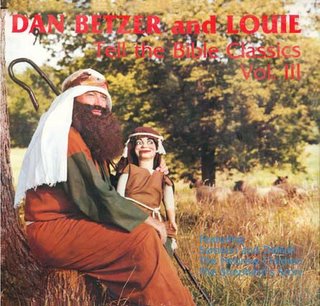
Again, you say, “Mysteriously, we are joined to him in his resurrection and can walk in
newness of life.” Why “mysteriously”? Is the mystery only that the fact of the obviously incomplete (at the very least!) transformation is inexplicable in terms of the mechanics of atonement as described for instance in 2 Corinthians 5:21 and elsewhere? It seems to me that, because of the logic of the Cross, a theologian who understands our righteousness as in any sense infused must appeal to “mystery” to explain the confusingly limited character of that infusion. My view-- that imputation is the whole story, including ontologically—does not require such an appeal.
Finally, you raise the common—and in a lot of ways, I confess, quite reasonable—critique that imputed righteousness is in the character of a deception, a false “clothing” that hides the deeper ontological reality. You say, “God is not fooled when he looks at us.” This critique forgets that it is GOD who put these clothes on us in the first place—no one is trying to fool God except God himself. Even if it seems unfair—or too easy—that this imputation, these “clothes,” should actually work, and should achieve all the things that a sinless life would have achieved, that is a moot point. The Bible tells us that God himself accepts what was done on the Cross. Of course it is unfair! It is unfair to Christ himself most of all! But when God says that a thing is so, then it is so. “Let there be light.” “It is finished.”
In more practical terms, there are two reasons why we know the imputation is “real” and true, even though it is never an infusion. The first is that Christ actually had to die for what was imputed to him. It was so real that it really deserved death, and really did get what it deserved. It was not a “legal fiction” or a loophole or a deceiving set of clothes—he really died because of the sin that was imputed to him. That proves that God saw the imputation as real, not just an “appearance” cloaking a different reality. When God is the one looking, appearance and reality are always the same thing.
The second reason is that the imputed righteousness to us is also true in practice. We are loved by God in real and concrete ways even though we do not deserve it on our own steam. Any moment of providential intervention is done on the basis of imputed, and therefore fully “real” righteousness. God loves us because he thinks we deserve to be loved, and that can only be on the basis of the Cross. When I am a jerk to my wife, and don’t listen to her and am so involved with, say, a blog post I am writing, that I do not notice that she has had a hard day and needs to be listened to, and she then sits down and instead of bringing up her own needs asks me to tell me about what I’m writing and what I’ve been thinking about, she is treating me as if I were being lovable instead of being an insensitive jerk. The love she expresses when she does this is based on imputed righteousness—she is treating me as I deserve to be treated only in Christ, not at all how I should be treated in myself. Even so, her love is still real. I am really treated in a certain way-- not because of what I am but because of what has been imputed to me. Imputation is real, not a convenient fiction that God “sees through.” It is real because the one who determines reality said that it is.
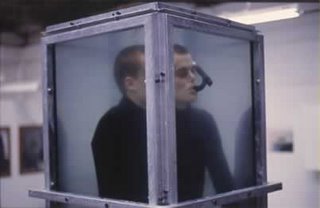
Again, thank you for your stimulating thoughts. I cannot agree with you, above all on the basis of your view of being and action as soteriologically distinct categories, but I do love the opportunity to discuss the issues further. I write so much precisely because I think the points you raise are so formidable! Anyway God bless and do correct me where I have misunderstood or made an error. I understand from both DZ and JZ that you and I are systematic theology brothers-in-arms in the making—I look forward to meeting you!
Simeon





